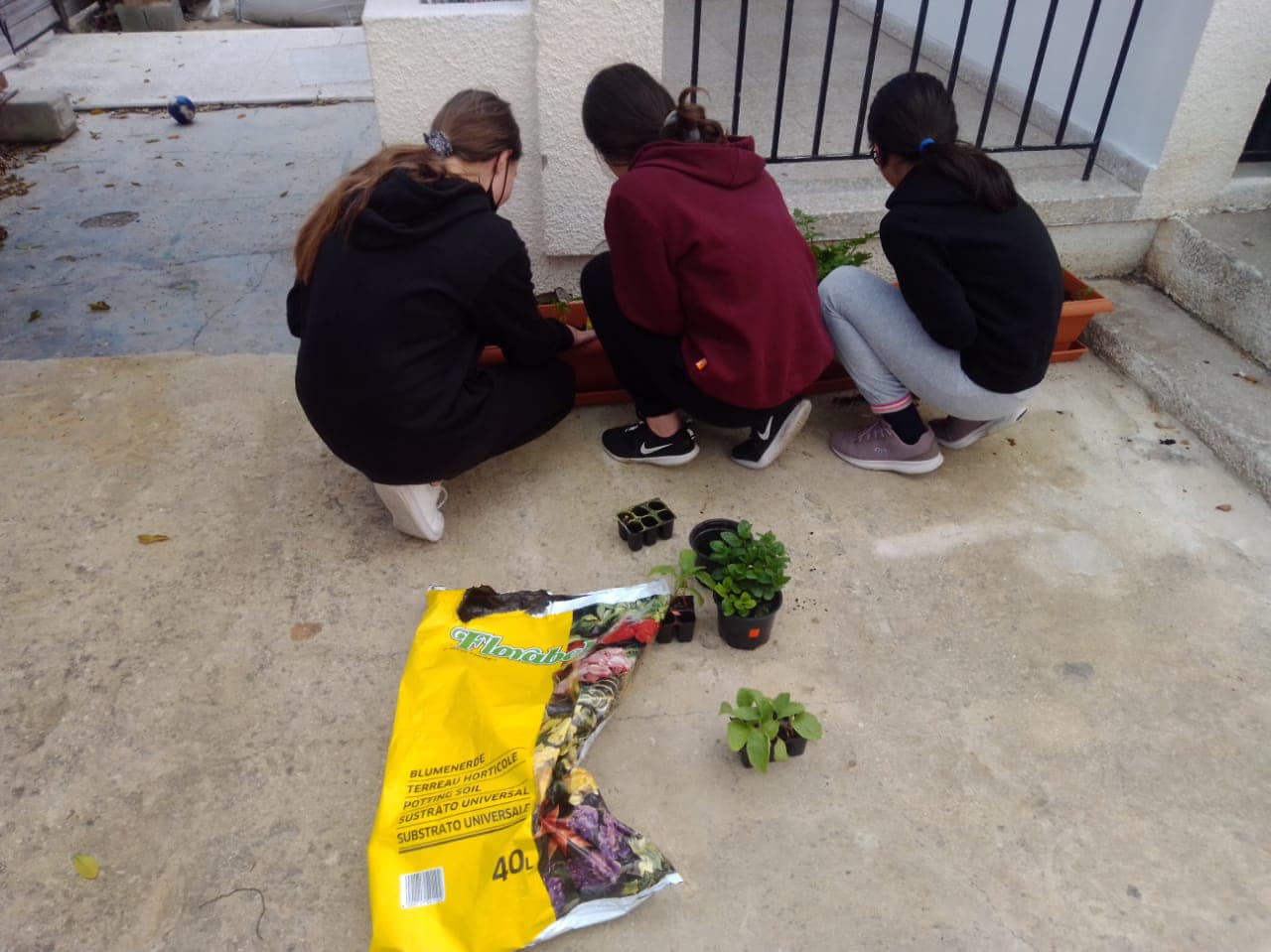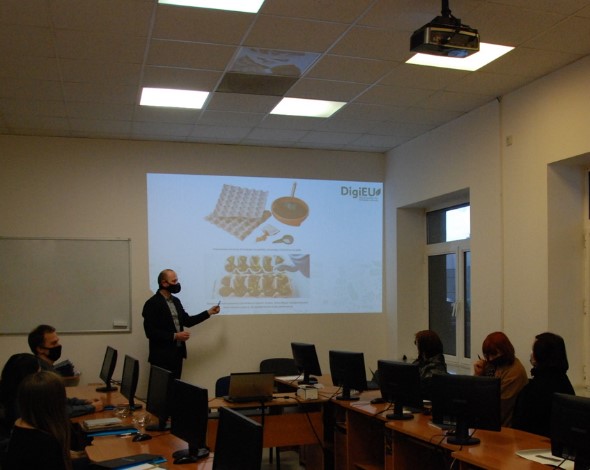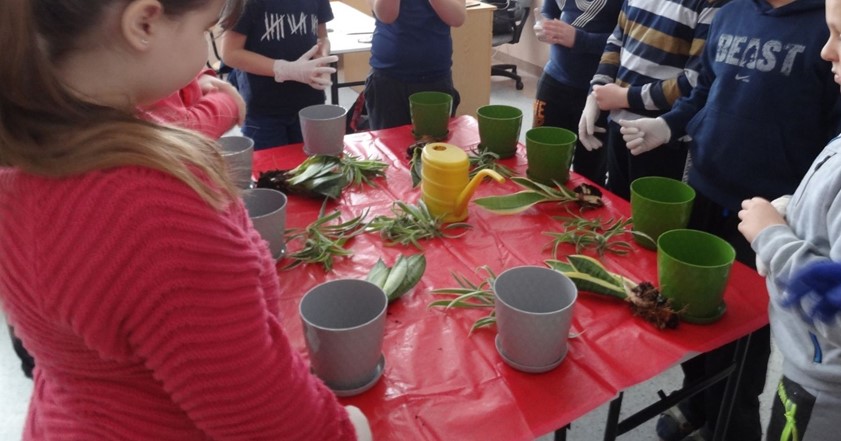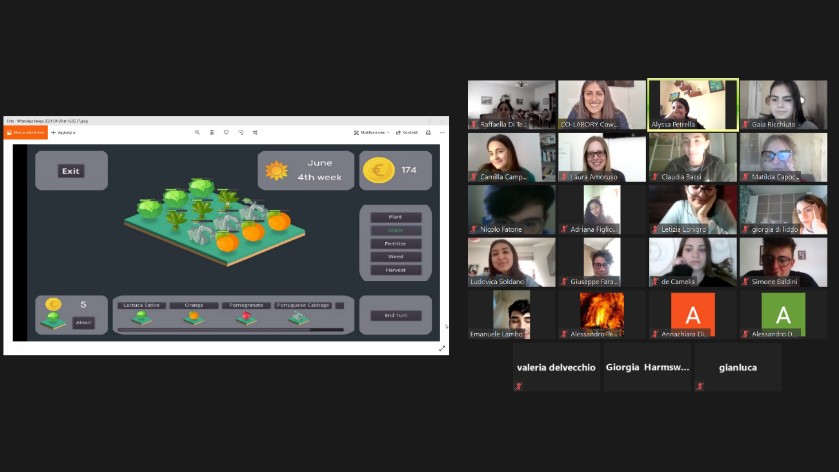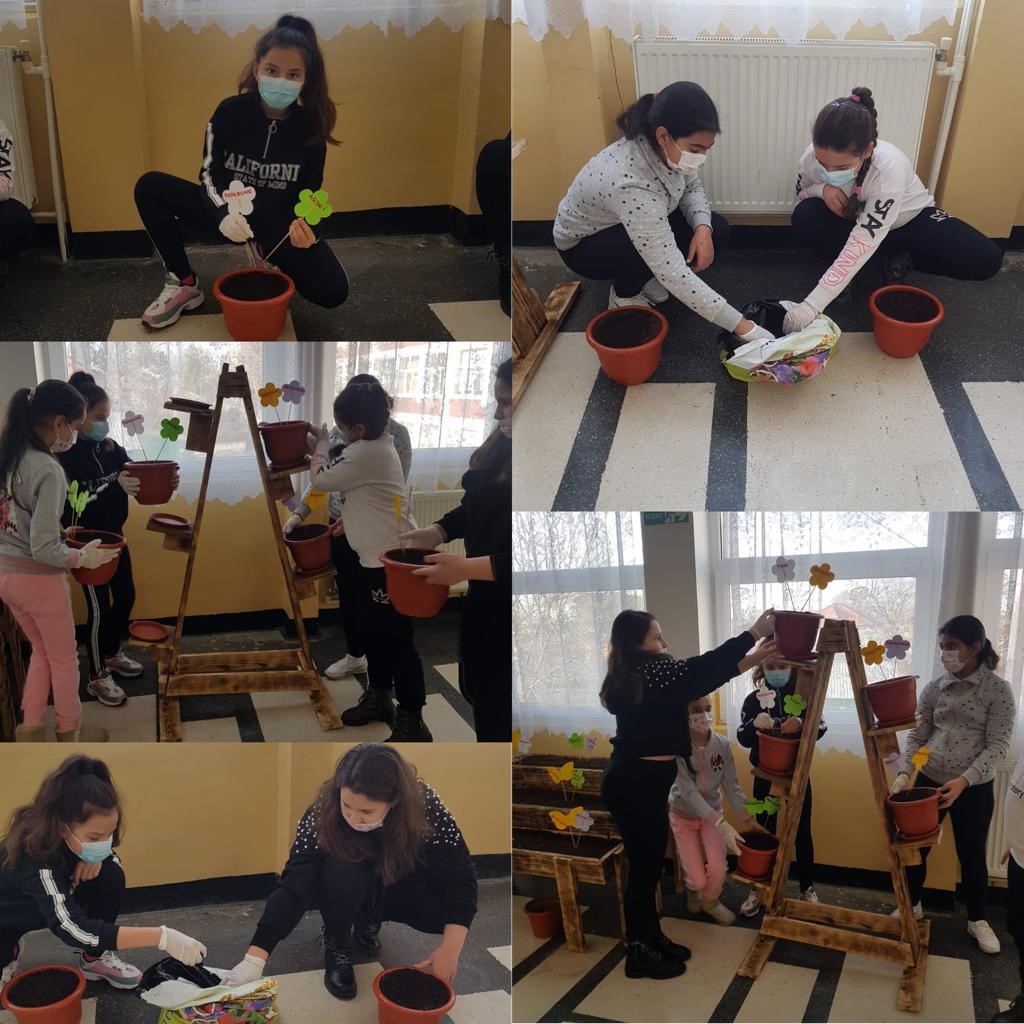DigiEU
Basic information
Project Title
Full project title
Category
Project Description
Digital Garden for European Schools is a project which, thanks to innovative teaching methods (TEAL), aims to experiment with an innovative teaching approach that moves away from traditional methods, favoring the attention of learners, giving space to their needs of active participation.
The project consists of a guided path that leads students to develop basic knowledge and skills, through which they will be able to install and manage gardens in domestic environments, or in public places.
Project Region
EU Programme or fund
Which funds
Other Funds
ERASMUS+ Programme
Project Number: 2019-1-IT02-KA201-062276
Description of the project
Summary
Digital Garden for European Schools (DigiEU) is an Erasmus + project which, thanks to innovative teaching methods (TEAL), aims to experiment with an innovative teaching approach that moves away from traditional methods, favoring the attention of learners, giving space to their needs of active participation.
Specifically, the project consists of a guided path that leads students to develop basic knowledge and skills, through which they will be able to install and manage small gardens in domestic environments such as balconies, terraces, or in public places by creating urban gardens.
This knowledge was acquired by the students through theoretical and practical workshops held by teachers, farmers, designers, nutritionists through teaching 3.0 (TEAL), in all the countries that make up the partnership: Italy, Portugal, Cyprus, Romania and Poland.
The project achieved 2 important results:
1. a "TEAL Garden Classroom" Toolkit, which guides teachers in the design and implementation of an educational path based on the construction of urban gardens for domestic use, with multidisciplinary objectives and methodologies, in a theoretical/practical way and on the benefits of outdoor education. It aims to transmit tips and instructions on how to build and manage an urban garden, together with an overview on the educational situation in Europe.
2. design and prototyping of a game-app. The game-app will guide children during all phases, from sowing to harvesting vegetables through the knowledge of seasonality, nutritional properties, and the characteristics of vegetables depending on the nations in which you choose to play. The role-play involves and binds the player's life with that of their garden, by means of suggestions, reminders, tutorials, pertinent blogs, with an educational value if we consider the transmission of information regarding methods of care and nutritional information on fruit and vegetables present in the game, allowing the process of learning by doing.
Key objectives for sustainability
CONTEXT
The education context is changing progressively, education based on open technology will be "necessary" and not only "desirable"in a short while, and this counts towards all age groups. We need to ensure that especially young people are equipped with the essential digital skills for their future.
Internet is changing the ways in which education is transmitted. It is expected that over the next ten years the e-learning market will increase by fifteen times, representing 30% of the whole education market.
The benefits of these developments should be made available to all European citizens.
It is important that educators and policymakers shape this transformation rather than endure it passively.
It is clear that the principal challenge of these years is not only the improvement of the quality education and training system but the improvement of education through digitization.
NEEDS
• More quality in teaching and learning
• Expand the knowledge and understanding of the educational practices of the countries involved
• Modernization of Schools
• Need to Active participation by students
• Greater availability of usable public spaces
• More green knowledge
GOALS
For teachers, students, and school system:
- Improving the pedagogical skills and the didactic instruments;
- Promoting co-operation to ensure the quality of education;
- Promoting innovative work practices, learning, and discussion;
- Create synergy between the active organizations in the field of Education, Local governments and participant organizations to encourage a better quality of education;
- improve students' digital and green skills.
Key objectives for aesthetics and quality
To test the two project results at a national level, all the partners involved teachers and students during a workshop.
The target group involved among all partner countries consists of students aged between 8 and 19 years old, and teachers of primary or secondary school.
A first theoretical-training part explaining the result and its use and a practical part where it was possible to build an urban garden live to test the contents of the TEAL GARDEN CLASSROOM and download and play the GARDEN APP to continue building and managing their own virtual garden even after the end of the test phase.
The feedback on the TEAL GARDEN CLASSROOM result was very positive, collecting positive comments especially from teachers who immediately recognized the potential of the TEAL methodology and its direct application in their work.
The students were surprised especially by the many possibilities of creating an urban garden anywhere with a few simple materials and they found it interesting to know and learn more about the TEAL methodology.
The result of the GARDEN APP project tested by both students and teachers, was particularly appreciated by the students who declared that they had learned a lot of new contents regarding the crops present in the game, managing a vegetable garden while having fun playing proving once again that these tools and methodologies are much more captivating for young people and appeal to their critical spirit and curiosity because they are not presented in a static or watertight manner
The older students under the coordination of teachers, created, in school or at home, different vegetable gardens. They went through stages such as: preparing the land / recipient / space, getting the seeds, and sowing them. The students did a small research about the climate and the season of planting.
They have design and self-constructed the educational vegitable garden. Each student kept a diary about the growing of the planted vegetables.
Key objectives for inclusion
DigiEU project involved participants with fewer opportunities facing Economic and social obstacles as well as Educational difficulties, the project wants to to support students coming from different background. Since the beginning of the project, the partnership has been committed to understand the difficulties that many of them have to face for example,having difficult lives if they come from dysfunctional families backgrounds, lack of general and specific skills, poor disposable income and low motivation. Being in a foreign country with few language skills or living in remote rural areas, with few interactions with locals. One of the main project target group is local students, coming from a migration context with economics and educative difficulties, at risk of social exclusion and school dropout. Therefore the project worked to support them directly and indirectly with practical tools and materials in order to motivate them to not renounce to their social life and informal and professional training opportunities, to continue on possible progress paths. To support the maximum participation of these people, the partnership of DigiEU project was committed to guarantee that there are no criteria or exclusion factors (social, financial, etc.) for the selection of participants in the project activities. Furthermore, to address the difficulties and obstacles mentioned above, the partnership intend to continue to disseminate and exploit the project results at national and EU level, through targeted activities and actions to guarantee the maximum participation and involvement of people with fewer opportunities. An important aspect in this perspective of inclusion and support is the possibility that all relevant project results such ah the Teal Garden Classroom toolkit and the game-app Garden-App will be free and easily accessible to everyone as well as being developed in a user-friendly manner This will ensure both open access and the availability of project results.
&am
Results in relation to category
DigiEU impact allowed the knowledge and dissemination of the TEAL methodology in the school environment. For students with the development of knowledge and basic skills to install and manage small, well-equipped vegetable gardens in domestic environments as well as an experimentation of the new didactic teaching (TEAL), favoring a more positive attitude towards European projects. Improving the level of key competencies and transversal skills such as digital and social skills, self-confidence and self-esteem, creativity, tenacity, greater autonomy, cultural and social awareness, motivation and confidence to take further learning and training opportunities. Strengthen the understanding of the concepts of biodiversity, ecosystems, basic ecology and environmental respect, becoming interested in rural and agricultural culture while living an active learning experience. For tutors and teachers, the impact registered concerns implementing the knowledge and experimentation of a new teaching method (TEAL), increasing awareness about its potential of teaching 3.0 toward an improvement of educational tools for greater awareness of the social, linguistic and cultural diversity of Europe. Better recognition of non-formal and informal learning outcomes; acquisition of organizational, technical, professionals and problem-solving skills and capacity to manage critical issues. On the European level the project allowed sharing and comparison of ideas, practices and methods useful for collaborations at national and transnational level seeing the School education system benefiting from the redefinition of teaching through the TEAL didactic methodology, creation and consolidation of a transnational education network with Public authorities also allowing them with statistics, data and analysis concerning the didactic experimentation implemented, from which to draw for any new policies on the subject of school education in future.
How Citizens benefit
Students, teachers, school staff, farmers, designers, makers, nutritionists, policymakers, civil society organizations, voluntary associations were involved in the Pilot test of the project results, workshop and local dissemination events.
These activities allowed them to have:
- greater sensitivity to the topic of innovative teaching and green issues
- more positive attitude towards European projects
- better understanding of innovative practices, policies and systems in the education sector in all countries
- reduction of early school leaving
- redefinition of teaching through the TEAL didactic methodology
- creation and consolidation of a transnational education network
- statistics, data and analysis concerning the didactic experimentation implemented, from which to draw for any new policies on the subject of school education
- improvement of understanding and response to social, ethnic, linguistic and cultural diversity.
Innovative character
Our project idea resumes the experience of the "vegetable garden-gardening" workshop carried out by several schools on the Italian territory, which has achieved more than satisfactory results. In particular, the school and the maintenance of an ecological vegetable garden created in the schoolyard, by the N. BOBBIO Turin State School "L'orto nel cortile", saw the motivation of the students always high and thanks to the cooperative learning they were able to develop abilities and social skills working in small groups, with well-defined roles and tasks, in an interactive, responsible, collaborative and supportive way. Starting from this experience of educational model with the aim of enhancing the understanding of the concepts of biodiversity, ecosystems, basic ecology, environmental respect, bringing pupils closer to rural and agricultural culture, our project goes beyond the simple realization of the garden, and seeks to make these innovative aspects which in line with EU requests, aim to improve the quality of education, quality of services and learning outcomes. Creates and disseminates among children a more responsible food culture, through the game and the cultural comparison in a digitization key. Thanks to the innovative teaching methods (TEAL), we are able to experiment new teaching that moves away from the traditional ones fostering the learner's attention, stimulating and giving space to the need for active participation and expression of one's own opinions.


